There are many enemies to face in Solasta: Crown of the Magister. As such, it’s better to be prepared lest your party gets wiped out. Scouting ahead certainly helps, as does knowing the locations of traps, light sources, and objects that you can interact with. Here’s our guide to help you with combat and stealth mechanics in Solasta: Crown of the Magister.
Note: For more information, check out our Solasta: Crown of the Magister guides and features hub. You may also take a look at our beginner’s guide and crafting/faction vendors guide.
Solasta: Crown of the Magister guide – Combat and stealth tips
Exploring dungeons and using light sources
Many encounters in Solasta: Crown of the Magister allow you to prepare beforehand. Ideally, you’ll want to make sure that environments are well-lit to avoid penalties. There are objects such as braziers, torches, and windows that you can interact with to create a permanent light source.
In some cases, you can just use a torch or candle to light them. Alternatively, you could cast relevant cantrips that’d have the desired effect (i.e., lighting a brazier or destroying a boarded window).
Likewise, characters can use spells such as Light to illuminate a piece of equipment, or Daylight which has a massive area of effect (AoE). Moreover, elves and half-elves have the Darkvision trait that allows them to see clearly.
Oh, and certain enemies such as the undead (i.e., vampires and ghouls), will take damage if the light is shining on them.
Stealth, spotting traps, and positioning
As you explore locations, you can spot traps that you can disarm, or shoot/blast objects that can damage enemies (i.e., stalactites in caverns). If you click on the “cautious” stance, your characters will crouch and stealthily make their way across the room. This is pretty helpful since you can avoid a sudden engagement.
Try to move a Rogue or Ranger (someone with high dexterity and Stealth proficiency) to scout an area, taking care to avoid discovery by enemies. Look for ideal positions such as pillars or towers that provide a decent vantage point, too. When you’re ready, shoot an unaware enemy to launch a surprise attack. This will make the entire enemy squad lose a turn.
Note: Versatile characters who have high strength and Athletics proficiency, meanwhile, will be able to jump across great distances.
Combat, dice rolls, and difficulty sliders
Combat in Solasta: Crown of the Magister is turn-based. To simplify the nature of combat, just think of every action that you do (and every action taken against you) as having a corresponding attack roll. A means of defending yourself, other than your armor class or AC, comes in the form of saving throws. These are dice rolls that take a relative attribute into consideration (i.e., a wisdom or WIS check for a particular spell).
Although I played on Authentic difficulty, you can tweak various settings to your liking. These include enemy HP, the success rate of attack rolls/saving throws, and even how merciless enemies are (i.e., if they’d keep attacking downed characters).
Note: Speaking of downed characters, a teammate with 0 HP is considered dying/knocked out. You need to use an ability such as Spare the Dying to stabilize them. Downed characters perform a “death save” during their turn and, if they end up with three failures, they’re considered dead. Your only recourse is to use a Revivify scroll or spell. If a teammate or important NPC can’t be revived, then it’s a game over and you’d need to reload.
Concentration and ritual spells
If you take a look at spell descriptions, you’ll notice that some are categorized as “concentration” or “ritual” spells. Concentration means that a character may cast that particular spell, but there are a few caveats:
- You can’t take a hugely damaging hit that breaks concentration, or you’d need to roll a CON check to keep it active.
- You may not cast another concentration-type spell without canceling the previous one.
Usually, these types of spells involve a long-lasting buff (i.e., Bless or Fly) or an additional effect on the environment (i.e., Black Tentacles). It also applies to summons such as Conjure Elemental. In fact, if you have a Wizard who has an elemental and concentration is broken, that creature will become hostile.
As for ritual-type spells, these have a small book icon. If you click on the ritual tab on your action bar, you can freely cast the spell without expending a spell slot, although around 10 minutes will pass by in-game. Examples of ritual spells include Identify and Detect Magic.
Somatic spellcasting and equipped weapons
If this setting is enabled, then characters who always have an item held in both hands won’t be able to cast a majority of spells due to the somatic component. Examples include dual wielding and using a sword and shield setup. Instead, you need to switch to your alternative weapon loadout to cast spells.
Bear in mind that other setups such as two-handed weapons, staves, bows, and crossbows allow you to cast. It’s assumed that the character does have a two-handed weapon equipped, but they’re not actively using it. For instance, a bow is a two-handed weapon, but that doesn’t mean you have an arrow that’s already nocked the entire time.
Note 1: There are many other facets of combat in Solasta: Crown of the Magister that I won’t be able to discuss in detail here such as shoving opponents, dodging, opportunity attacks (when adjacent enemies try to move one tile away), and readying actions (which is like an “overwatch” concept in other turn-based strategy games).
Note 2: In any case, since we’ve discussed various mechanics, you can also read our guides regarding starter tips for beginners and crafting/faction vendors.
Solasta: Crown of the Magister is available via Steam. For more information, check out our guides and features hub.

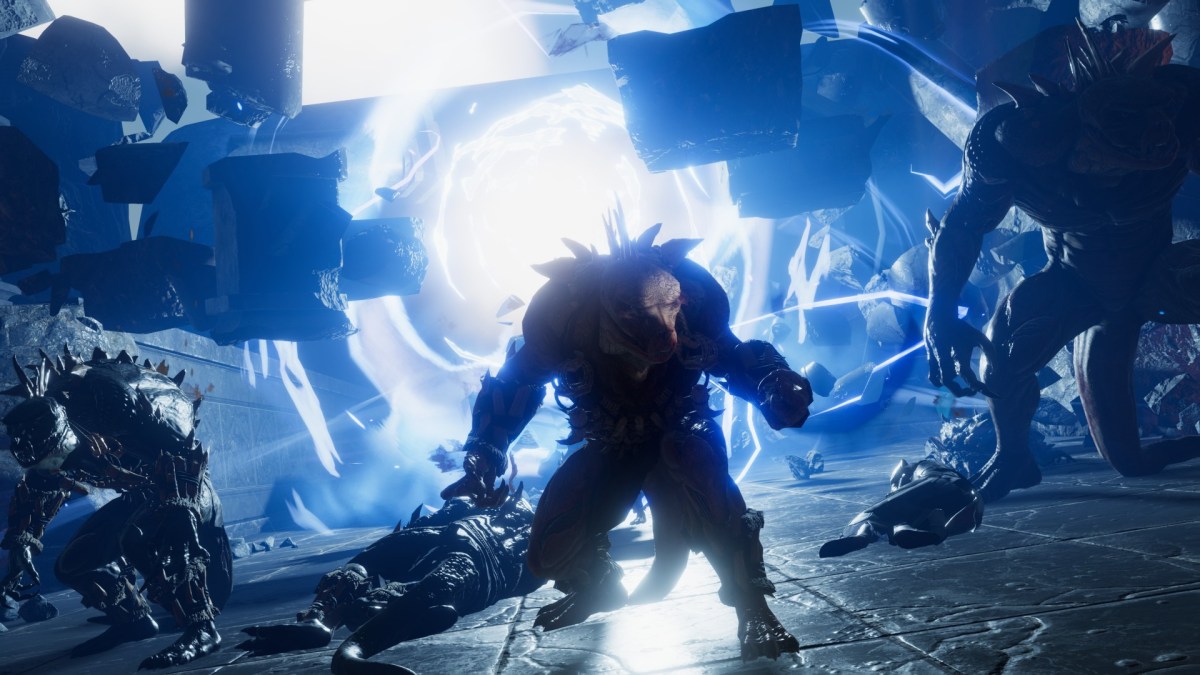
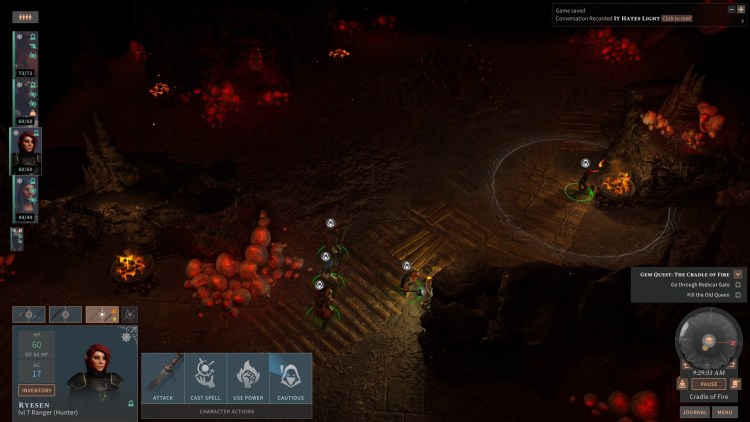
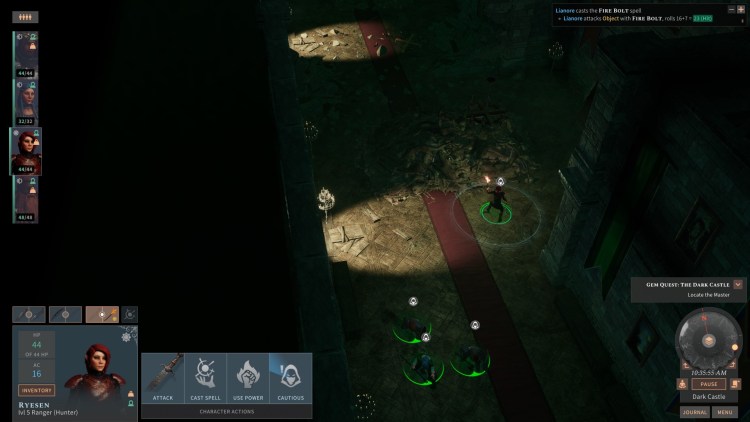
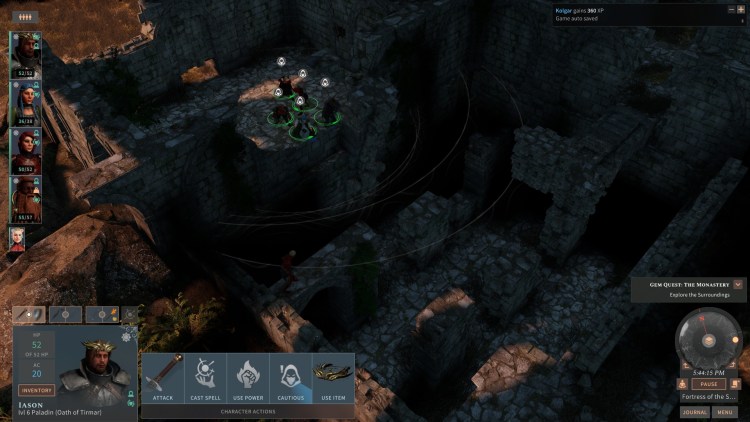
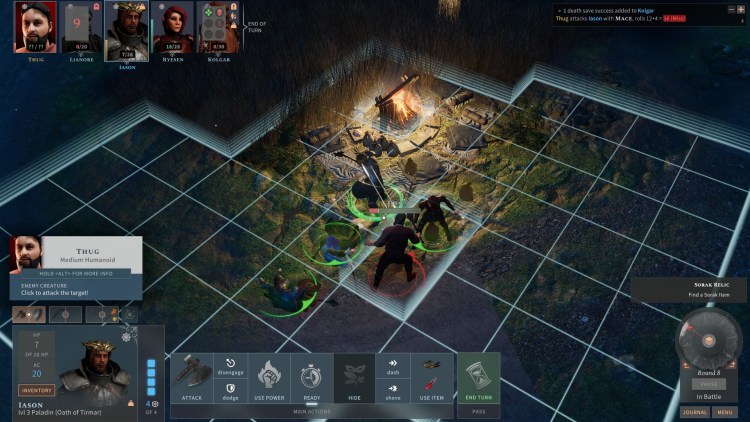
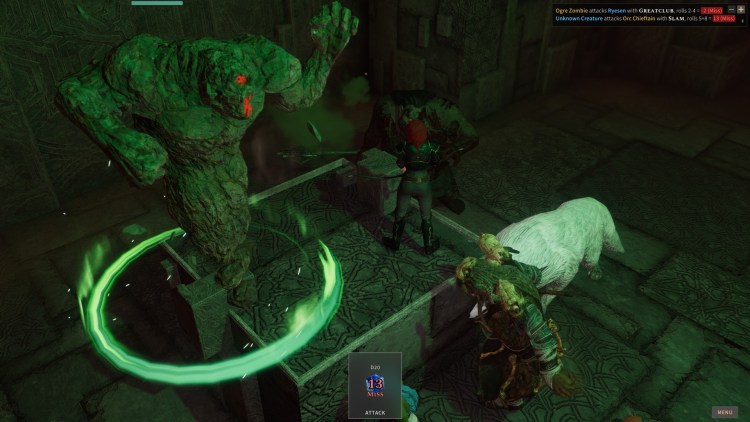
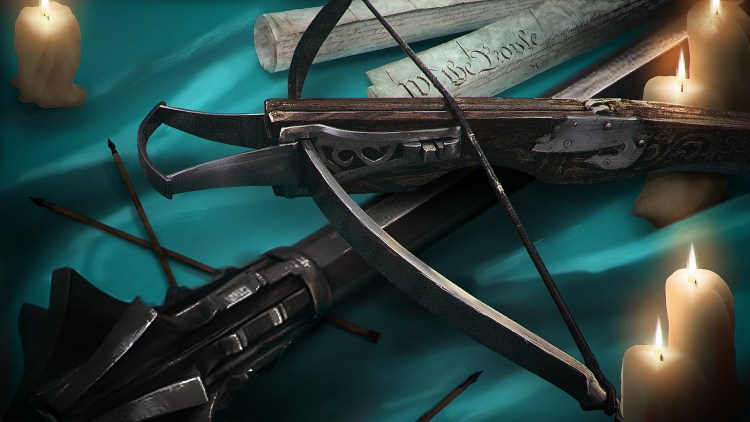


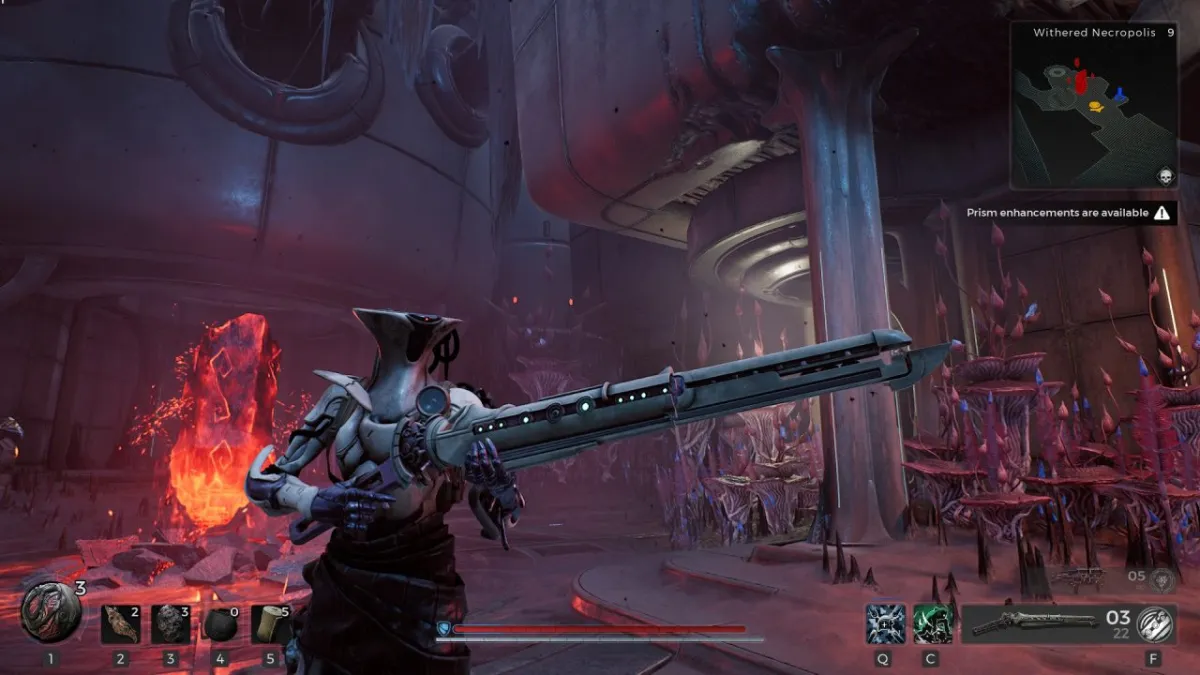

Published: May 26, 2021 08:45 pm